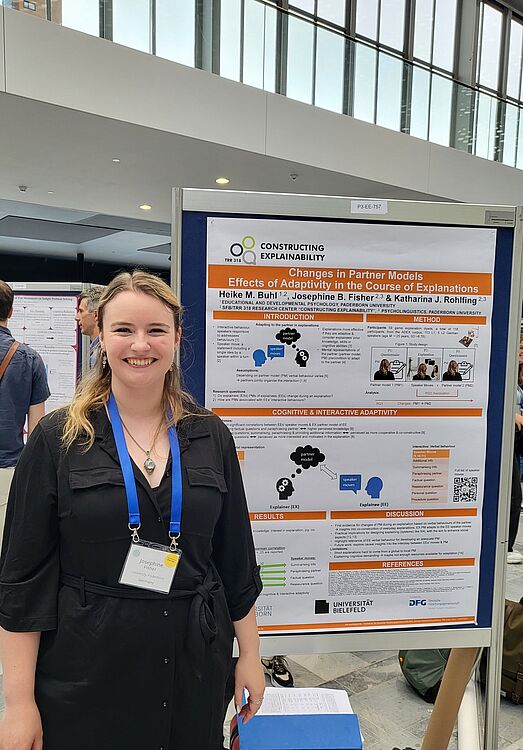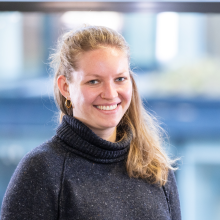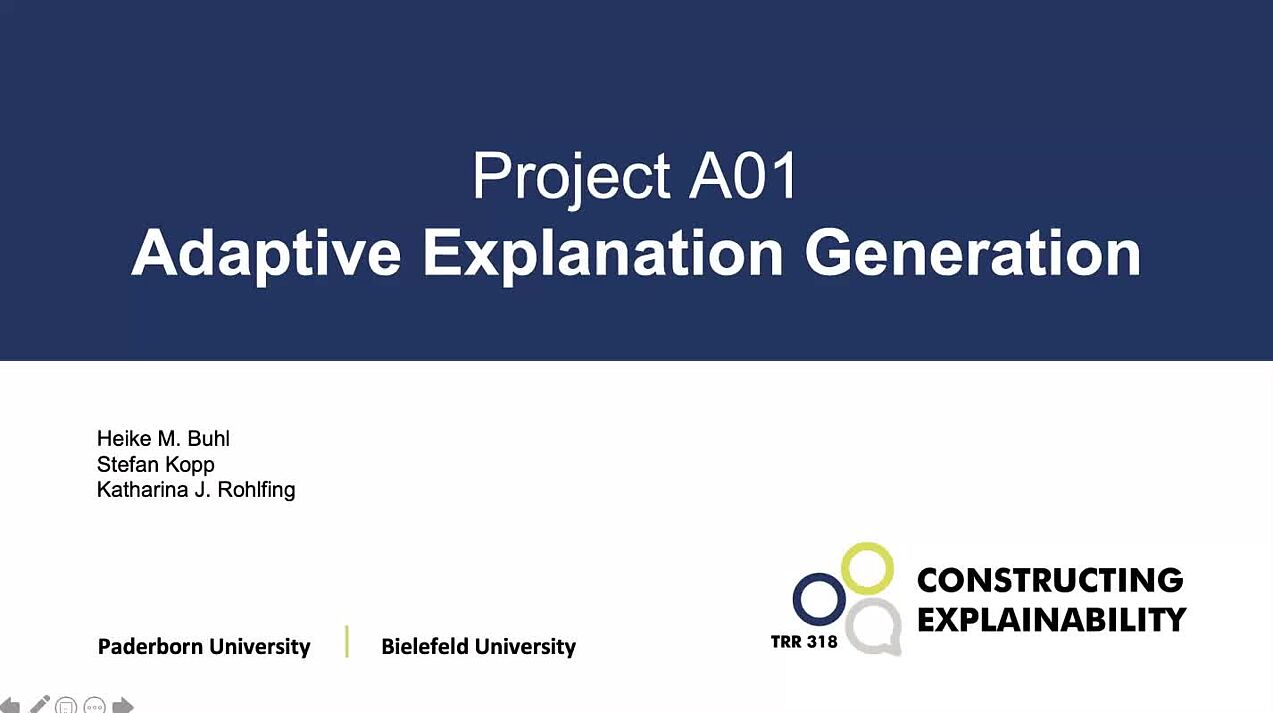Project A01: Adaptive explanation generation

While explaining something, people generally take their conversation partner’s reactions into account and adapt their explanation accordingly. In Project A01, researchers from linguistics, psychology, and computer science are studying two components of this adjustment: cognitive adaptivity and interactive adaptivity. In cognitive adaptivity, the person doing the explaining has a pre-conception of their counterpart, which then changes during the explanatory process. This is referred to as the partner model. Interactive adaptivity refers to how the explainee adjusts their formulations of the explanations as the dialogue unfolds. The interdisciplinary team of researchers is investigating how both of these forms of adaptivity are interconnected, and how for instance the partner model can be used as a means for adapting formulations. The team will observe and interview approximately 300 interlocutors engaged in explanatory situations. Researchers are now working to develop a dynamic computational model of adaptive explanation based on this data.
Research areas: Psychology, Computer science, Linguistics
Support staff
Vincent Emmerling. Bielefeld University
Paula Herrmann, Paderborn University
Christoph Kowalski, Bielefeld University
Celina Nitschke, Paderborn University
Marco Verwiebe, Paderborn University
Marie Weise, Paderborn University
Joanna Wilkens, Paderborn University
Posters
Conference-Poster presented at CogSci 2024 of the publication "Changes in Partner Models - Effects of Adaptivity in the Course of Explanations" by Heike M. Buhl, Josephine B. Fisher and Katharina J. Rohlfing.

Conference-Poster presented at 4th Summer School on Social Human-Robot Interaction with the title "Substantiveness in explanation" by Josephine B. Fisher.
Publikationen
Integrating Representational Gestures into Automatically Generated Embodied Explanations and its Effects on Understanding and Interaction Quality
A. Robrecht, H. Voss, L. Gottschalk, S. Kopp, ArXiv:2406.12544 (2024).
Changes in partner models – Effects of adaptivity in the course of explanations
H.M. Buhl, J.B. Fisher, K. Rohlfing, Proceedings of the Annual Meeting of the Cognitive Science Society 46 (2024).
Explain with, rather than explain to How explainees shape their own learning
J.B. Fisher, K.J. Rohlfing, E. Donnellan, A. Grimminger, Y. Gu, G. Vigliocco, Interaction Studies 25 (2024) 244–255.
SNAPE: A Sequential Non-Stationary Decision Process Model for Adaptive Explanation Generation
A. Robrecht, S. Kopp, in: Proceedings of the 15th International Conference on Agents and Artificial Intelligence, SCITEPRESS - Science and Technology Publications, 2023.
A Study on the Benefits and Drawbacks of Adaptivity in AI-generated Explanations
A. Robrecht, M. Rothgänger, S. Kopp, in: Proceedings of the 23rd ACM International Conference on Intelligent Virtual Agents, ACM, 2023.
SNAPE: A Sequential Non-Stationary Decision Process Model for Adaptive Explanation Generation
A. Robrecht, S. Kopp, in: Proceedings of the 15th International Conference on Agents and Artificial Intelligence, SCITEPRESS - Science and Technology Publications, 2023, pp. 48–58.
Exploring the Semantic Dialogue Patterns of Explanations – a Case Study of Game Explanations
J.B. Fisher, A. Robrecht, S. Kopp, K.J. Rohlfing, in: Proceedings of the 27th Workshop on the Semantics and Pragmatics of Dialogue , 2023.
Which “motionese” parameters change with children's age? Disentangling attention-getting from action-structuring modifications
K. Rohlfing, A.-L. Vollmer, J. Fritsch, B. Wrede, Frontiers in Communication 7 (2022).
Exploring Monological and Dialogical Phases in Naturally Occurring Explanations
J.B. Fisher, V. Lohmer, F. Kern, W. Barthlen, S. Gaus, K. Rohlfing, KI - Künstliche Intelligenz 36 (2022) 317–326.
Show all publications







